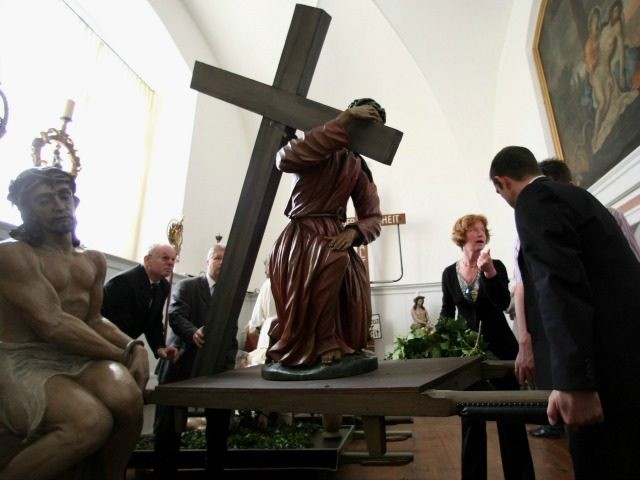A new report issued by the German bishops’ conference paints a dismal picture of a Church in steady decline according to every relevant indicator.
During the year 2015, a total of 181,925 people left the Catholic Church in Germany, while only 2,685 people became Catholic and 6,474 came back to Catholicism. This follows on the worst year in the German Catholicism’s modern history, when in 2014 the Church lost a total of 218,000 people.
Average church attendance in Germany has also suffered a precipitous decline in the last 20 years, down from 18.6 percent in 1995 to just 10.4 percent in 2015.
Participation in other sacraments has revealed a similar downward trend. Between 1995 and the present the number of baptisms in Germany has fallen by more than a third, from almost 260,000 babies baptized 20 years ago to just over 167,000 in 2015.
The practice of holy matrimony risks becoming a quaint vestige of times past, with the number of church marriages plummeting by about 50 percent in the same period. In 1995, more than 86,000 couples were married in Church, while in 2015 the number had sunk to just over 44,000.
Last year, veteran Vatican journalist Marco Tosatti examined the German Catholic exodus in an article titled “The Bleeding German Church,” where he tied the crisis to two principle causes, one financial and the other doctrinal.
Tosatti proposed that German disaffection for the Church stems primarily from an ever more progressive trend away from traditional Catholic belief and practice toward a position often associated with mainline Protestantism, which is also in decay.
During the 2014 extraordinary Vatican synod on marriage and the family, the German bishops received considerable attention for their drive to relax Catholic sacramental discipline, especially regarding Holy Communion for the divorced and civilly remarried. Heading the charge was progressive Cardinal Walter Kasper, who further muddied the waters by offending the African bishops, who, as a bloc, represented a more traditional force within the assembly.
In his analysis, Tosatti also noted the close alliance between church and state in Germany, which leads many to a more relationship with Catholicism that is more institutional than devotional.
The Catholic Church in Germany is quite wealthy, in no small part due to the notorious “church tax.” Citizens declare their religious affiliation on their income tax returns, and depending on which box one checks, a special tax or “Kirchensteuer” goes to the appropriate religious body. The tax is calculated as an additional 8-9% of one’s total income tax payment, rather than as a percentage of income itself. In 2011, the German Church received somewhere in the neighborhood of $6.3 billion from the tax.
Moreover, the Church in Germany is the second largest employer in the country, with only the state employing more people. Many of those employed are non-believers, and the Church’s considerable institutional presence influences people’s rapport with it, tending to create a more formal, and sometimes utilitarian, relationship.
Despite the grim situation, the head of the German Bishops’ Conference, Cardinal Reinhard Marx of Munich and Freising continues to be sanguine in his evaluation, and described the Church last week as a “strong force, whose message is heard and accepted” in Germany.
“There obviously not only is an interest in, but also an active desire for the sacraments of the Church,” he said.
Last year, Pope Francis slammed the German bishops, calling them to account for the decline of the Catholic faith in the country.
Noting the “drastic drop in Sunday Mass attendance” as well as a comparable decline in vocations to the priesthood, church marriages and sacramental confession, Francis said that the situation of the faith in Germany is bleak.
“When we take all these facts into account,” Francis said, “we can speak of a true erosion of the Catholic faith in Germany.”
As a remedy, the Pope called on the bishops to re-introduce people to the Eucharist and Confession during the Year of Mercy, to embrace the new evangelization, to strengthen the role of priests, and to commit to the protection of unborn life.
Follow Thomas D. Williams on Twitter Follow @tdwilliamsrome

COMMENTS
Please let us know if you're having issues with commenting.